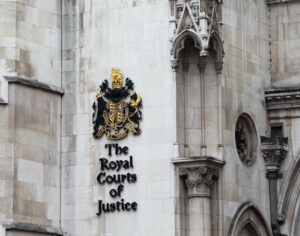What does it mean when a whole country’s Internet goes down? When it’s a country racked by civil war, digital silence from the entire nation can’t be a good omen, can it? The country becomes like a submarine running in silence.
Last night I first saw the news when an old colleague from Rochdale College posted an article from Umbrella Security Labs, a research division of OpenDNS, to her Facebook wall. “BREAKING NEWS: TRAFFIC FROM SYRIA DISAPPEARS FROM INTERNET.”
“At around 18:45 UTC the OpenDNS resolvers saw a significant drop in traffic from Syria. On closer inspection, it seems Syria has largely disappeared from the Internet.”
The article did a good job of explaining the situation without using too much geek talk. It seems that Syria has two top level domain (TLD) nameservers. Both were unreachable. Two other nameservers used for Syria were reachable, presumably because they’re not located within the country. There were more explanations on how this was accomplished–but the gist of the story was that Syria was down.
Nobody in Syria was telling the world what was happening on Facebook or through Tweets. Nobody was uploading photos of the atrocities of war. Also, no one knew if this silence was designed to allow bands of government forces to roam through streets killing everything in sight, whether it moved or not.
This wasn’t the first time the Internet had gone down in Syria since the civil war began. In November there was a blackout that lasted for three days. At that time, activist within Syria feared that the Assad regime was going to launch a major offensive or that the shut-down was an attempt to effectively keep the opposition from being able to communicate, both with the outside world and within Syria for strategizing.
| [yop_poll id=”11″] |
There is nothing new about this sort of action. In the days before the Internet, radio and TV stations, more often than not government owned, often went silent or dark during times of military insurrections. If not dark, they dropped regular programming to broadcast wall-to-wall marches, interspersed with announcements ordering all citizens to remain indoors while reassuring them that government forces had everything under control.
The intent, of course, was rarely reassurance but was meant to strike fear in the citizenry and thereby pacify them–or at least make them think twice about cooperating with the other side. Pulling the plug on the Internet accomplishes the same thing–and more. Not only does it cut lines of communications though social networks like Twitter and Facebook, it also effectively disrupts telephone communications, as even calls made from land lines are apt to be routed through the Internet these days.
Indeed, manipulation of broadcast outlets seems to have been in the playbook last night, with state run radio and television stations reporting that a “fault in optical fiber cables” was the cause of the blackout.
In it’s report on the incident this morning, the BBC turned to a spokesperson with Akamai Technologies, a company that serves between 15 and 20 percent of all web traffic worldwide, who called the government claims “unlikely.”
“David Belson, of Akamai, said: ‘Our monitoring shows that Syria’s international internet connectivity is through at least four providers, and published submarine cable maps show connectivity through three active cables.
“‘As such, the failure of a single optical cable is unlikely to cause a complete internet outage for the country.'”
Although I went to bed last night half-expecting to awaken this morning to news of a bloodbath or some other military tragedy in Syria overnight, that doesn’t seem to be the case–at least not yet. According to the OpenDNS folks, Syria came back online at 14:13 UTC, which would be around 10:13 this morning here on the East Coast of the U.S., if I’m doing the math right. According to OpenDNS, they were down for 19 hours and 27 minutes.

During the November Internet blackout in Syria, the hacker group Anonymous swung into action, providing dial-up access numbers to help those in Syria get back online. According to Legal Insurrection, the same was true again last night:
“Meanwhile, internet activists – many with the hacker collective Anonymous – are again furiously tweeting out dial-up access information for Syrians to reach the outside world today.”
This Twitter outreach to the people of Syria is taking place under the username “opsyria.”
Although there’s been no “official” word yet on the cause of the blackout, it’s a dollars-to-doughnuts winning bet that the Assad regime will lay blame on “terrorist,” which would be a code word for everyone who’s in opposition to what passes for a government in Syria these days.
The blackout may very well have been an act of sabotage by anti-government forces. We may never know. Remember, it’s sometimes called “the haze of war” for a reason.
Christine Hall has been a journalist since 1971. In 2001, she began writing a weekly consumer computer column and started covering Linux and FOSS in 2002 after making the switch to GNU/Linux. Follow her on Twitter: @BrideOfLinux









Chris, it may be that the same folks who want us to believe the Assad forces used Sarin also want us to believe the Assad forces made a Syria-shaped hole in the internet. (I have no confidence in Assad but I have even less in the jihadi opposition and their neoliberal Western backers.)
@B.Ross Ashley You’re totally right on this one. Jumping to conclusions on this at this point would be a fruitless exhibition of the knee jerk reaction. My suspicion is that Assad wouldn’t have done this without purpose; i.e. he’s planning on a mop-up operation which he’d like to keep on the down low as long as possible. As this now doesn’t appear to be the case, anyone might be guilty-including a little country to the southwest called Israel.